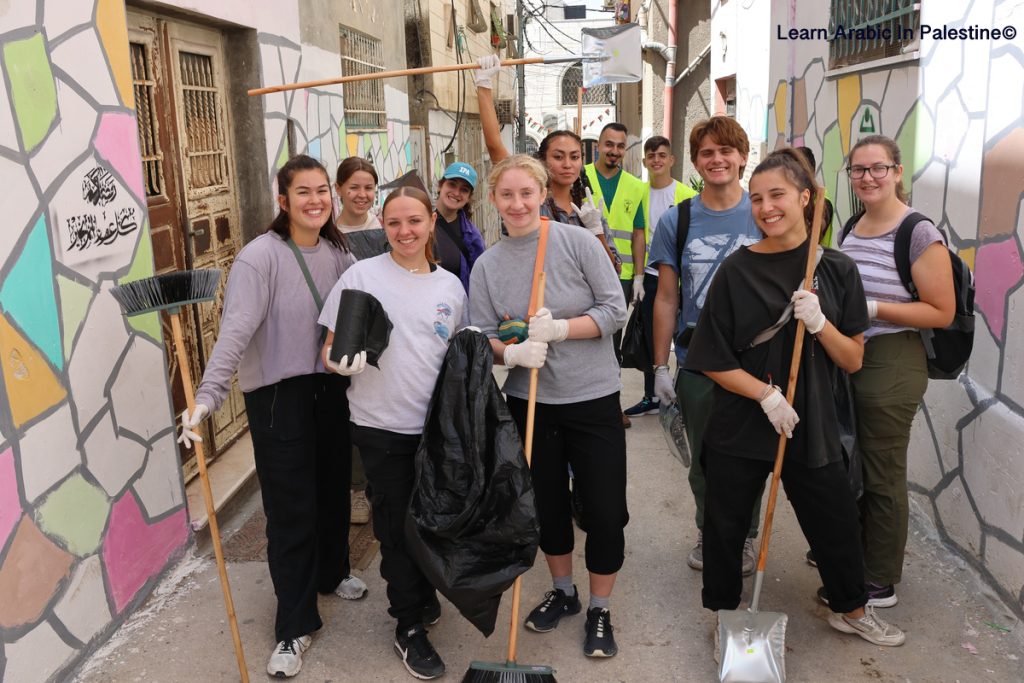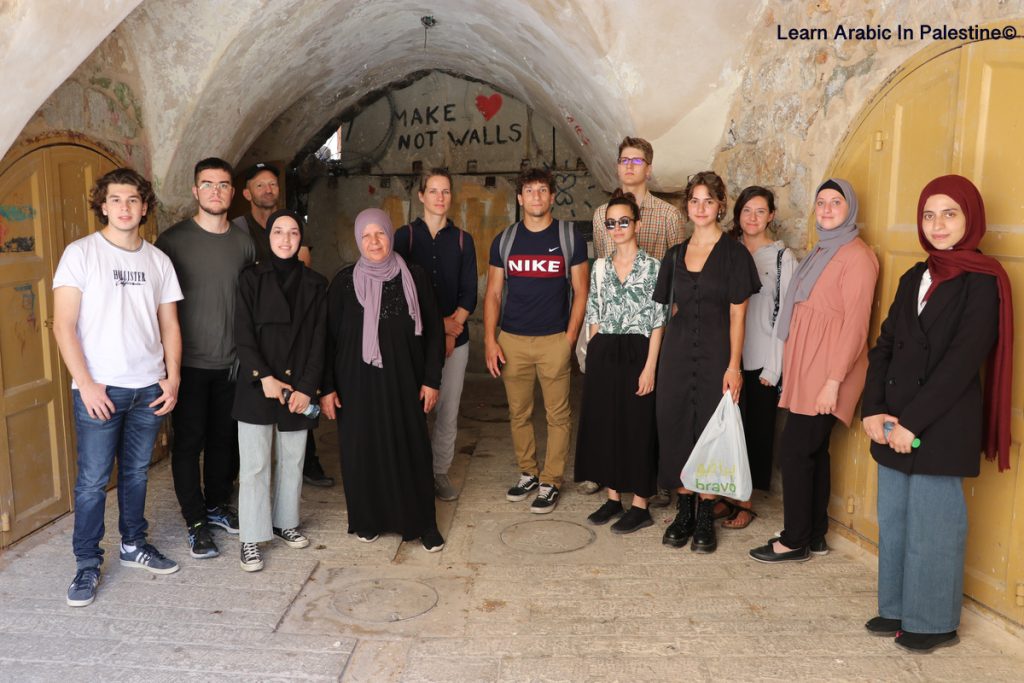The Online Course on Palestinian Refugees offers a unique opportunity for participants to learn about the refugee situation in Palestine, gaining insight into the lives of refugees both in the West Bank camps and the Gaza Strip.
The Online Course on Refugees in Palestine seeks to inform participants about the daily challenges and difficulties experienced by camp residents. Among the most severe difficulties for camp residents is the actual infrastructure of the camps themselves. Educational and health services which are provided by the United Nations Relief and Works Agency (UNRWA) are also under pressure due to the scale of these services being reduced. Another challenge for refugees in the camps is the burgeoning population, as the camps cannot physically expand to cater to this increase in population.


Table of Contents
Introduction to Palestinian Refugees
Palestinian refugees are defined as “persons whose normal place of residence was Palestine during the period 1 June 1946 to 15 May 1948, and who lost both home and means of livelihood as a result of the 1948 conflict.” When the UNRWA began operations in 1950, it was responding to the needs of about 750,000 Palestinian refugees. Today, some 5 million Palestinian refugees are eligible for UNRWA services.
Nearly one-third of the registered Palestinian refugees, more than 1.5 million individuals, live in 58 recognized refugee camps in Jordan, Lebanon, the Syrian Arab Republic, the Gaza Strip, and the West Bank, including East Jerusalem. Socioeconomic conditions in the camps are generally poor, with high population density, cramped living conditions, and inadequate basic infrastructure such as roads and sewers.
In the aftermath of the hostilities of June 1967 and the Israeli occupation of the West Bank and the Gaza Strip, ten camps were established to accommodate a new wave of displaced persons, both refugees and non-refugees.
The remaining two-thirds of registered Palestinian refugees live in and around the cities and towns of the host countries, and in the West Bank and the Gaza Strip, often in the environs of official camps. While most of UNRWA’s installations such as schools and health centers are located in the refugee camps, a number are outside; all of the Agency’s services are available to all registered Palestinian refugees, including those who do not live in the camps.
Palestinian Refugees in Gaza
The Gaza Strip is home to a population of approximately 2.3 million people, which includes some 1.8 million Palestine refugees. Undeniably, for at least the last decade and a half, the socioeconomic situation in Gaza has been in steady decline due to a lack of resources and attacks from the Israeli occupation. Notably, Gaza is home to eight Palestinian refugee camps, each illustrating the unique character of its respective community.
The UNRWA (United Nations Relief and Works Agency for Palestine Refugees in the Near East) provides vital services within the eight Palestine refugee camps in the Gaza Strip. However, the administration and policing of these camps are not within UNRWA’s purview; instead, this responsibility falls upon the host authorities.
For those interested in making a positive impact, we highly recommend contacting UNRWA to inquire about internship and volunteer programs. Indeed, engaging with Palestinian children, women, and refugees in Gaza through such programs can contribute significantly to humanitarian efforts in the region.
Topics Covered On Online Course on Palestinian Refugees
All discussions and presentations in this course will be facilitated by a team from the Excellence Center, led by a Palestinian lecturer who speaks fluent English. They will provide a detailed explanation of the current and historical situation regarding refugees in Palestine. The presentations will include the following topics:
- The definition of a Palestinian refugee.
- Palestinian refugees in Gaza
- The purpose and work of UNRWA.
- The special situation of Palestinian refugees.
- The living conditions in Palestinian refugee camps both in Palestine and abroad.
- The difficulties facing refugees due to the Israeli occupation.
- The principle of the right of return.
- UN resolutions on Palestinian refugees.
- Proposed solutions to the refugee issue, from Donald Trump’s Middle East deal to other proposals.
Duration Of The Online Course
This Online Course on Refugees in Palestine is structured in such a way as to provide participants with all relevant information on the topic, through a series of intensive lessons and presentations.
- The online lessons will take place over four days (lessons can be taken sequentially or in a staggered fashion).
- Each lesson lasts for two hours (including a 10-minute break)
- The total duration of the course is 8 hours.
Benefits Of The Course
- You will gain a deeper understanding of the refugee situation in Palestine, of the organizations that work in the camps, and of the legal status of these camps.
- The course will be facilitated by a lecturer speaking fluent English.
- The course is completely online, saving participants time and money, while also making it possible for them to attend at a time and date of their preference.
- The first 15 minutes of the online lesson are free, after which participants can decide if they wish to continue with the course.
- The Online Course on Refugees in Palestine is organized in such a way as to accommodate your schedule.
- The course is very flexible, meaning that lessons can be taken sequentially or separately.
- Participants can attend the course as individuals or as part of a group (ranging between 2 and 8 students).
- At the end of the Online Course on Palestinian Refugees, you will receive a certificate of completion which will be verified by Study Arabic Online.
What Material Will Be Provided For Participants Of The Course?
- This Online Course on Palestinian Refugees is based on an explanation of the facts as they relate to the subject of refugees in Palestine, in addition to discussions, exchanges of opinion, and question and answer sessions.
- Participants will be provided with the text of all of the presentations, as well as any pictorial or video material related to the topic.
Who Would This Program Be Suitable For?
In general, the online course on refugees in Palestine would be suitable for:
- Social workers, human rights activists, legal researchers, or indeed anyone who is interested in the issue of refugees. All are welcome to register for this course.
- Individuals aged 18 – 75 years are eligible for this course.
- Students of Human Rights, Middle Eastern Studies, Sociology, Cultural Studies, and other related topics.
What Is Needed To Enroll On This Course?
To enroll in this Online Course on Palestinian Refugees, you will need the following :
- A functional laptop, smartphone, iPad, or similar device.
- The device must have a fully functioning camera, microphone, and speakers or headphones.
- Good internet connection.
- Ideally, you will need to be in a quiet place where you will not be interrupted or disturbed.
What Don’t You Need?
- Knowledge of languages other than English.
- An academic degree.
- No need to be a current university or school student.
- Previous experience or knowledge of the topics covered in the course.
Where and How?
We provide Online Courses on Palestinian Refugees via Skype, Zoom, WhatsApp, Facebook Messenger, Facetime, or any online platform.
Information on Online Courses on Refugees In Palestine:
| Platform of Online Course | (Skype, Facebook, Zoom WhatsApp etc) |
| Course Duration | 8 Hours |
| Hours Per Week | 1-4 (Flexible) |
| Session Length | 90 Minutes/4 Sessions |
| Course Costs | 150 Euro |
| Average Students Per Class | 1 (Once to One Course) |
| Participants | 16-75 years old |
| Days of the eek | Saturday-Friday |
| Language | English |
| Time of Classes | Days of the week |
| Program’s Reviews | Reviews and ratings On Gooverseas.com Reviews and ratings On Goabroad.com Participants video testimonials |
| University Credit | Available |
| Course Material | Available in PDF format |
| Registration Fee | 30 Euro |
How To Apply
If you are interested in participating in the Online Course on Refugees in Palestine, please write to us at Info@ecpalestine.org. In the subject line of your email write “Online Course on Palestinian Refugees.” We should be able to respond to your initial inquiry within 1-2 business days.
Summary
Our online Course on Palestinian Refugees presents a detailed overview of the refugee situation in Palestine. Its focus is on the experiences and daily challenges of the West Bank residents. Participants will be learning about the refugee camp infrastructure, as well as the consequences of overcrowding, and the pressures that UNRWA services face.
The course consists of four 2-hour sessions across four days, while still aiming for being flexible. This is because Study Arabic Online’s goal is to provide a flexible program for its participants. Since it is online, it is available to a global audience, as well as individuals and smaller groups. The usual attendees are social workers, human rights activists, and students of relevant fields. However, the course is open to anyone with a desire to learn about the refugees in Palestine. Upon completion, participants will receive a certificate verified by Study Arabic Online and access to all course materials, including text and multimedia resources.
Find Us Online
Whatsapp:+972-599-479 880
Website: https://ecpalestine.org/
EC Website: https://excellencenter.org/
Instagram: https://www.instagram.com/excellence.center
Facebook page: https://www.facebook.com/ExcellenceCenter
Facebook account: https://www.facebook.com/RafatECHebron
Watch us on Youtube: https://www.youtube.com/channel/UCsQSLdFZWZcBm6Uj0XMYuKg
Visit and Explore Palestine: https://www.facebook.com/ExplorePalestine